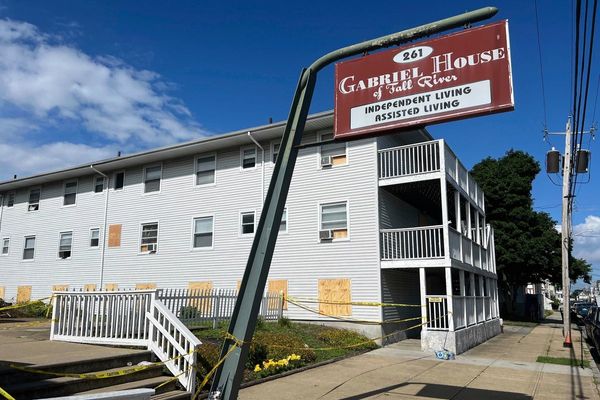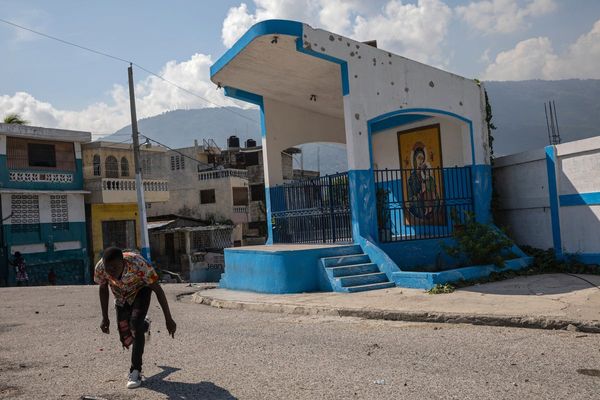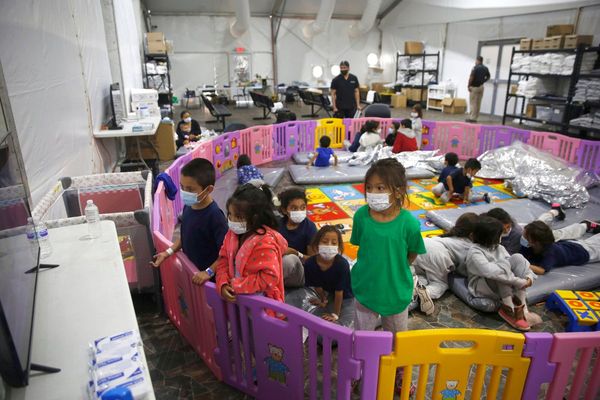
Donald Trump has said the US will impose a 35% tariff on imports from Canada from the beginning of August, and threatened to impose blanket tariffs of 15% or 20% on most other trading partners.
The US president sent a letter to Canada late on Thursday, after an interview in which he warned EU nations to expect a tariff announcement “today or tomorrow”.
Countries that do not receive a letter from Trump face larger tariffs than those that have a agreed a “reciprocal” deal at a rate of 10%.
“We’re just going to say all of the remaining countries are going to pay, whether it’s 20% or 15%,” Trump said in an interview with NBC News. “We’ll work that out now.”
The surprise declaration has made the EU nervous that the president could change his mind on signing an agreement in principle negotiated between the two sides to ease the transatlantic trade war.
Brussels has €21bn worth of retaliatory tariffs on US imports ready to come into force at midnight on Monday, but a spokesperson confirmed they could be paused in the event Trump signed off on the framework.
In a letter released on his social media platform late on Thursday, Trump told the Canadian prime minister, Mark Carney, that the new rate for his country would come into effect on 1 August and would be increased in the event of any retaliation.
Carney wrote on social media that his government would continue to defend Canadian workers and businesses in their negotiations with the US as they worked toward that deadline.
“Throughout the current trade negotiations with the United States, the Canadian government has steadfastly defended our workers and businesses,” he said in a post on X. “We will continue to do so as we work towards the revised deadline of 1 August.”
In his letter to Carney, Trump also complained about what he referred to as the flow of fentanyl from Canada. “If Canada works with me to stop the flow of fentanyl, we will, perhaps, consider an adjustment to this letter,” Trump wrote.
Canadian officials say a minuscule amount of fentanyl entering the US originates from Canada. Carney reminded Trump of the role that Canada plays in the battle to reduce the amount of the powerful opioid coming into North America.
“Canada has made vital progress to stop the scourge of fentanyl in North America,” Carney said. “We are committed to continuing to work with the United States to save lives and protect communities in both our countries.”
Former US government officials have warned that Trump’s trade policies could make the US more vulnerable to dangerous synthetic drug trafficking from abroad.
A US administration official said that tariffs on goods covered by Trump’s 2020 United States-Mexico-Canada Agreement (USMCA) on trade would “likely” be waived, but that “no final decisions” had been made.
Such an exclusion would significantly blunt the impact of Trump’s tariff increase on Canada.
In March, Trump imposed a 25% tariff on cars and auto parts imported from Canada. In June he announced a 50% tariff on Canadian steel and aluminium imports. The new rate would apply to all other goods.
Canada and the US are locked in trade negotiations in the hope of reaching a deal, but the latest threat seemed to put that date in jeopardy.
It was the latest of more than 20 such letters issued by Trump since Monday, as he continues to pursue his trade war threats against dozens of economies.
However the new tariff rates set by Trump this week could all be reduced to zero if the administration loses its appeal later this month of an adverse ruling by the US court of international trade, which found in May that the president had acted beyond his legal authority by using emergency powers to impose tariffs in the absence of an actual emergency.
That hearing at the US court of appeals for the federal circuit in Washington is scheduled for 10am local time on 31 July.
Canada and Mexico are trying to find ways to satisfy Trump so that the free trade deal uniting the three countries can be put back on track.
The USMCA replaced the previous Nafta accord in July 2020, after Trump successfully pushed for a renegotiation during his first term in office. It was due to be reviewed by July next year but Trump has thrown the process into disarray by launching his trade wars after he took office in January.
Earlier this year, Canadian and Mexican products were slapped with 25% US tariffs, with a lower rate for Canadian energy. Trump targeted both neighbours, saying they did not do enough on illegal immigration and the flow of illicit drugs across borders.
He eventually announced exemptions for goods entering his country under the USMCA, covering large numbers of products.
Thursday’s letter to Carney comes despite continuing trade negotiations and what many had seen as warming relations between Trump and the Canadian prime minister. Carney came to the White House on 6 May and had a cordial meeting with Trump in the Oval Office.
After Trump called off trade talks last month because of Canada’s newly imposed digital services tax, Carney agreed to rescind the levy, which would have affected US tech companies.
Trump has broadened his trade war in recent days, threatening new tariffs on a number of countries, including the allies Japan and South Korea, along with a promised 50% tariff on copper.
In an interview with NBC News published on Thursday, Trump said other trading partners that had not yet received such letters could face blanket tariffs.
“Not everybody has to get a letter. You know that. We’re just setting our tariffs,” Trump said. “We’re just going to say all of the remaining countries are going to pay, whether it’s 20% or 15%. We’ll work that out now.”







